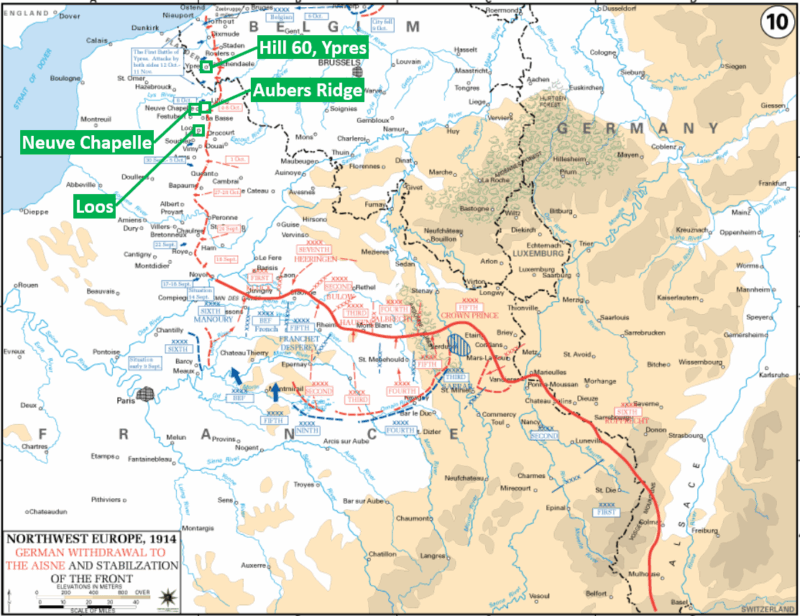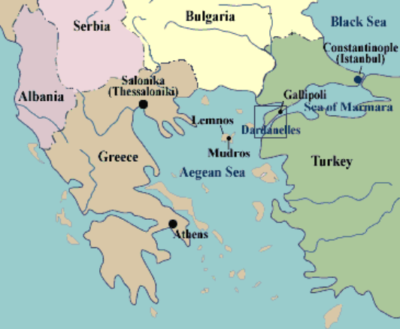Langholm soldiers, both regulars and Territorials, were involved in some of the major battles of 1915 on the Western Front and in the Gallipoli campaign.
The Western Front
| March | Neuve Chapelle, France |
| April/May | Hill 60, Ypres, Belgium |
| May | Aubers Ridge, France |
| September | Loos, France |
These four battles were at the northern end of the Western Front, shown below.

The Battle of Neuve Chapelle was the first major planned British offensive in the war, gaining a small amount of territory.
The capture of Hill 60, Ypres was part of the Second Battle of Ypres, taking back a small area which was gained by Germany in the First Battle of Ypres in November 1914. It saw the first large-scale use of ‘poison gas’ (chlorine) by Germany.
The Battle of Aubers Ridge resulted in high losses for minimal gain and was the catalyst for the Shell Crisis in the UK about the lack of sufficient quantities of appropriate munitions.
The Battle of Loos was Britain’s largest offensive in 1915 but failed to gain significant ground. It involved the first large-scale use of Kitchener’s new recruits and the first British use of poison gas.
The Gallipoli campaign
| April/May | Landings at Cape Helles |
| June | Pushing inland |
| July | Achi Baba Nullah |
| August | August Offensive |
The Gallipoli campaign was an attempt to open up a new front in the south-east of Europe. The Western Front had become a stalemate, bogged down in trench warfare. Winston Churchill was First Lord of the Admiralty and advocated a naval attack on the Ottoman fortifications in the Dardanelles straits, bounded to the west by the Gallipoli peninsula, with a view to gaining control of access to the Black Sea.

A British and French naval campaign in February 1915 failed to penetrate the heavily mined seaway, which was also protected by heavy artillery.
The governments of the Entente (UK, France and Russia) then endorsed a land campaign, which commenced in April 1915. The main participants in the attempted invasion were British and Commonwealth troops, but France also took part directly, while Russia provided planning support.
